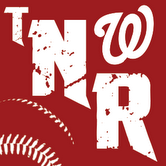On the topic of Jayson Werth, there isn’t a lack of opinion’s out there. Some are pretty negative, a few are positive. Here is a collection from some of the non-DC based writers for you to check out:
How good would he have to be in order to justify that deal from a market rate standpoint? Well, if we estimate his current value as about a +4.5 win player (slight drop-off from his prior three years due to age) and the price for a win at about $5 million this winter, using the same 5% annual inflation assumption/guess that we employed with Adrian Gonzalez yesterday and 0.5 WAR decrease per year for aging, we’d get his value over the next seven years to be $118 million – a little less than what he actually got. In order to get to the $126 million figure, we’d have to bump annual inflation up to almost 8 percent per year.
Giving a 32-year-old position player who has qualified for the batting title exactly twice in his major league career a guaranteed seven-year deal for over $100 million isn’t just a bad move. It’s irresponsible… he’s a massive risk for a deal anywhere close to this length, given his age, injury history and the boost he received over the past two years from his home park in Philadelphia — not to mention the combination fluke of a contract year in 2010 and a reverse platoon split he’s not likely to maintain.
Washington has been a competitor for Mark Teixeira, CC Sabathia and other big-ticket free agents in recent years, without success. By signing Werth, who was generally regarded as the No. 3 free agent in this year’s class behind Cliff Lee and Carl Crawford, the Nationals sent a fervent signal to the fan base that they’re tired of losing and intent on getting better.
Tim Marchman of Sports Illustrated
The interesting angle here, though, doesn’t involve Werth’s talents. It involves the Nationals, and what they want to be. Washington is an extremely rich market. (The city is poor and small; the suburbs are neither.) By my preferred measure — multiplying metro population by per capita income and dividing by the number of major league teams — it is actually the third richest in baseball. This even understates things. On a scale where 1 is average and the New York teams are at 2.45, the Nationals are at 1.68. The next-best team, the Philadelphia Phillies, are at 1.38. The gap between the Nationals and the Boston Red Sox is larger than the gap between Boston and the Arizona Diamondbacks or Seattle Mariners.
